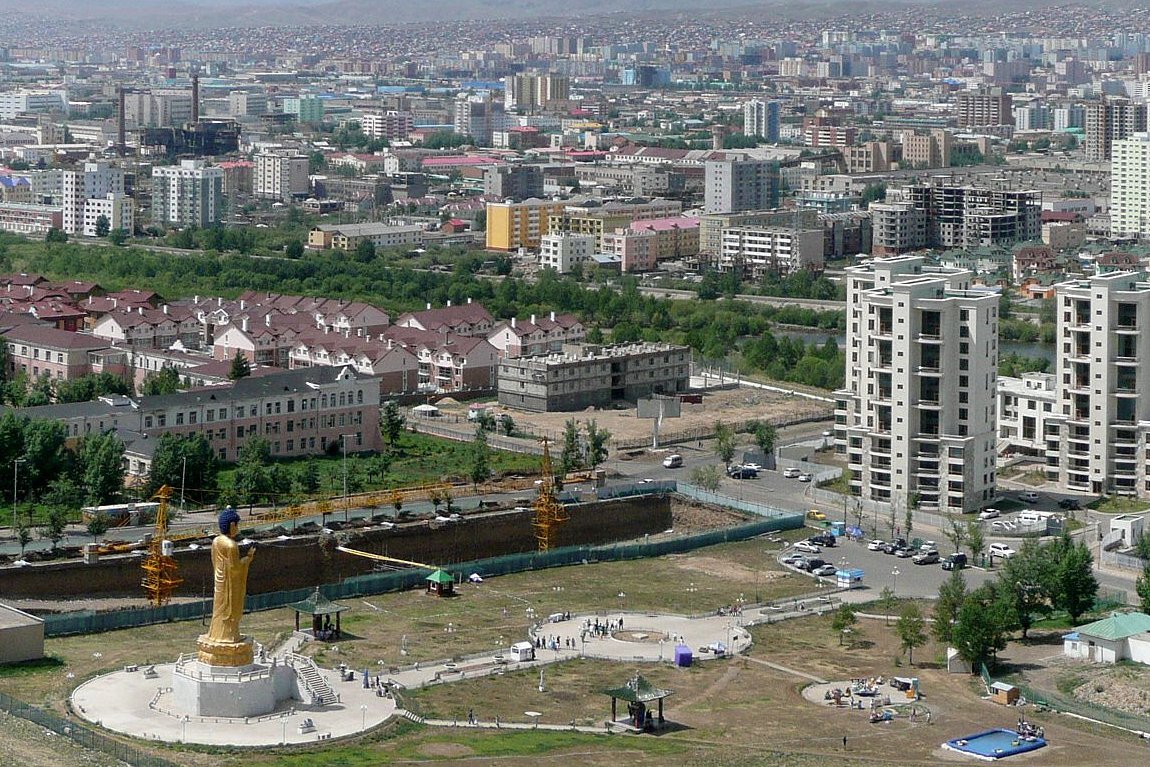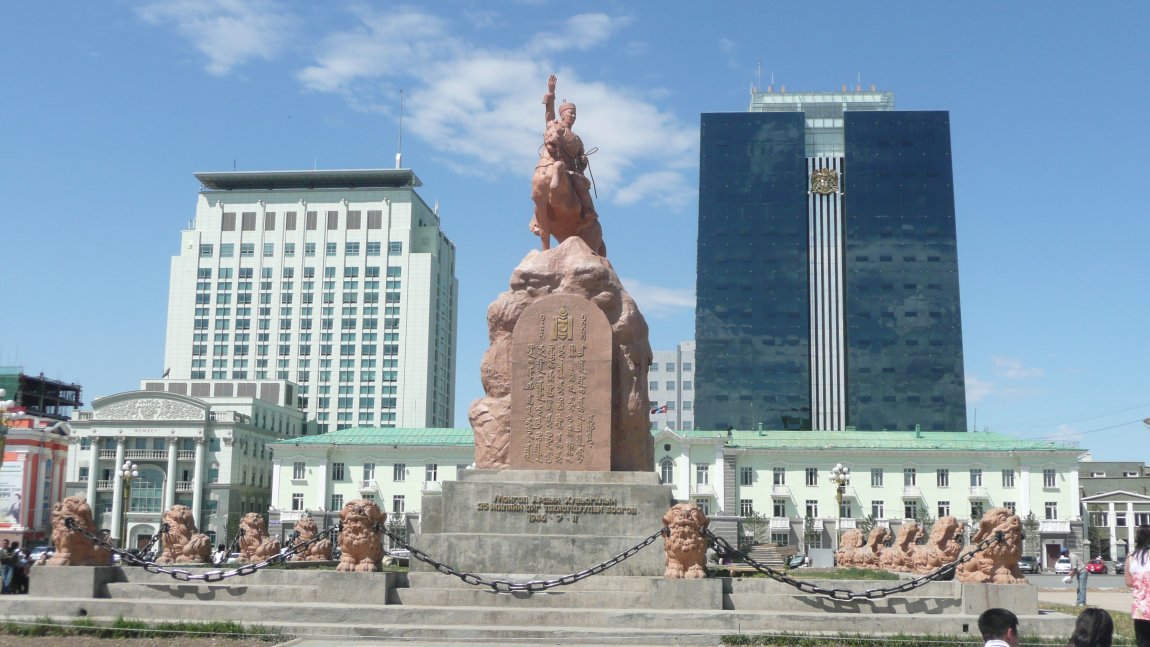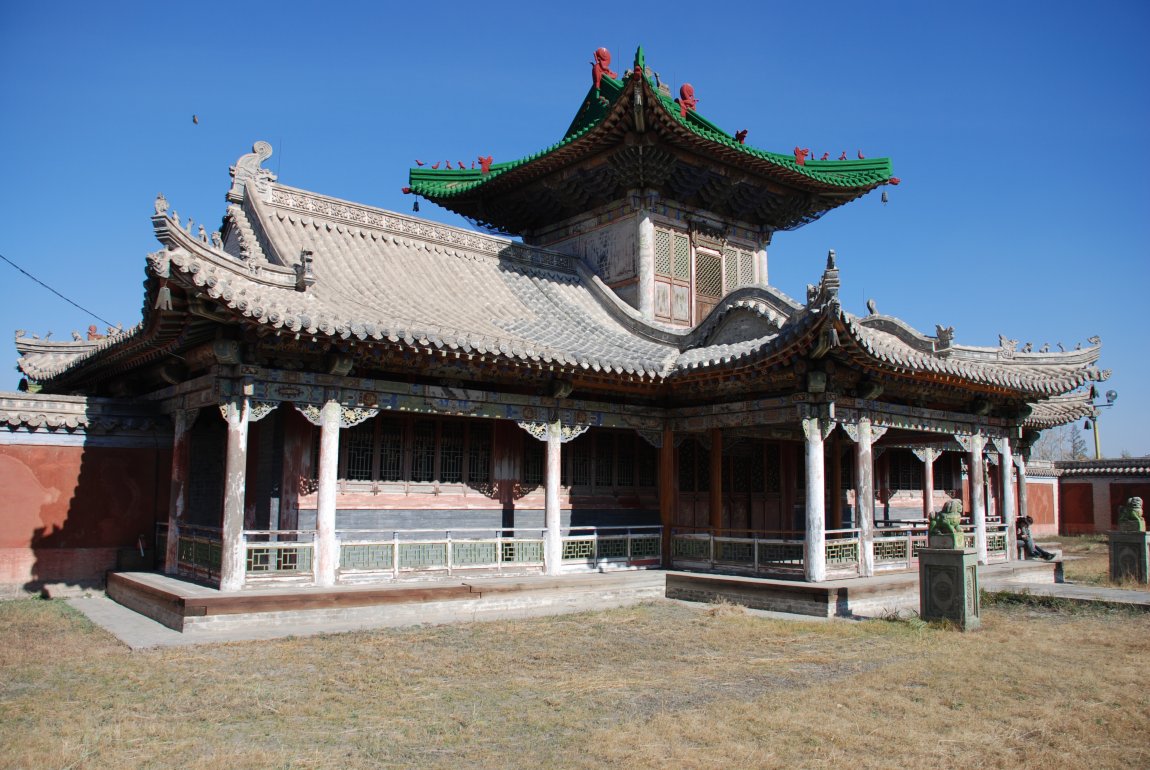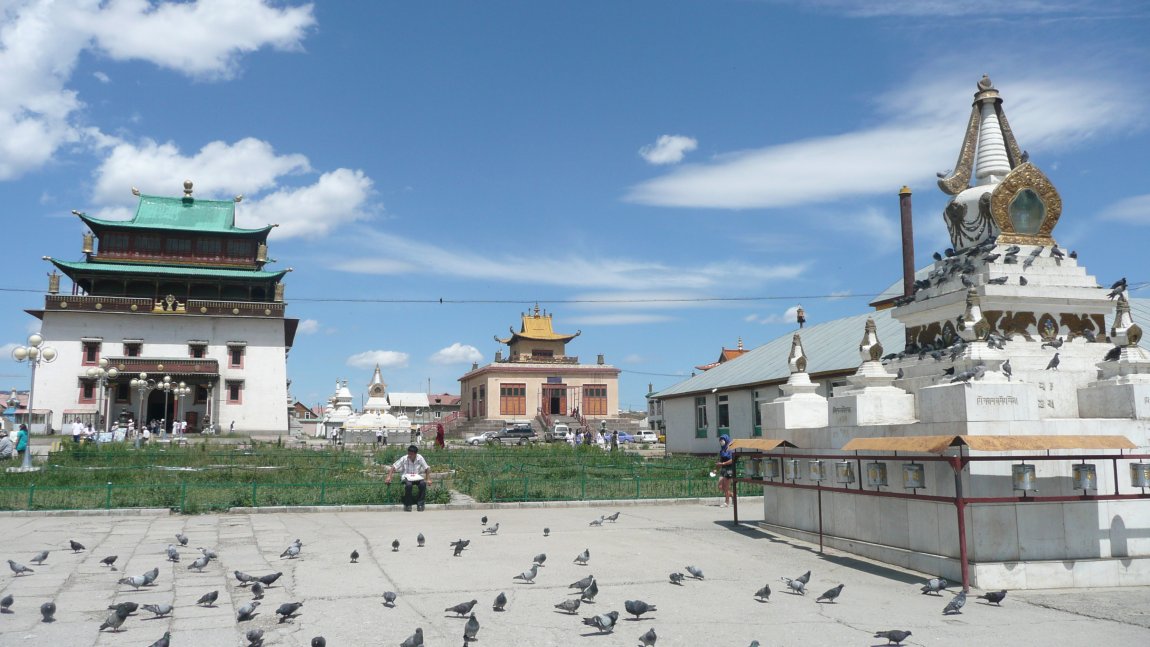 Ulan Bator, Mongolia
Ulan Bator, MongoliaSource: https://en.wikipedia.org/wiki/File:Panorama-Ulan-Bator-2009.jpg
Author: Brücke-Osteuropa

Author: Brücke-Osteuropa

Ulan Bator (Mongolian: Улаанбаатар, also written as Ulaanbaatar) is the capital and biggest city of Mongolia. The name of the city means "red hero". It covers 4,704.4 sq km (1,816 sq mi) and has a population of 1.2 million people (2011 estimate). Ulan Bator is eight hours ahead of Coordinated Universal Time (UTC+8). The phone area code here is +976 (0) 11.
One in every three Mongolians live in Ulan Bator. The city is the cultural, industrial and financial hub of Mongolia. All major roads of the country lies to Ulan Bator, which is also connected to the Trans-Siberian Railway and the Chinese railway system.
 Damdin Sükhbaatar Statue in Sükhbaatar Square, Ulan Bator
Damdin Sükhbaatar Statue in Sükhbaatar Square, Ulan BatorSource: https://commons.wikimedia.org/wiki/File:Ulan_Bator_14.JPG
Author: Brücke-Osteuropa

Author: Brücke-Osteuropa

The area around Ulan Bator has been inhabited going back to the Lower Paleolithic period. Archaeological excavations carried out between the 1940s to the 1960s revealed Paleolithic sites in the mountains surrounding the city. These date from as early as 300,000 years ago. There is also evidence of human habitation in the area from the Upper Paleolithic period (40,000 to 12,000 years ago), and into the Bronze Age (3,000 years ago).
The discovery of ancient tombs around Ulan Bator, among them the Xiongnu (209BC-93AD), Xianbei (93AD-4th century), Rouran (402-555), Gokturk (555-745), Uighur (745-840), Khitan (907-1125) and the Mongol Empire (1206-1368) provide clear evidence of continuous human habitation as well as the development of various nomadic empires in the area.
 Winter Palace of Bogd Khan, Ulan Bator
Winter Palace of Bogd Khan, Ulan BatorSource: https://commons.wikimedia.org/wiki/File:Winter_Palace_Bogd_Khan_3101891001_4bb4343134_o.jpg
Author: Gryffindor

Author: Gryffindor

Ulan Bator was founded in 1639 as a mobile monastery. In keeping with the nomadic pastorial life of the people, the monastery-town shifted from place to place according to the availability of supplies. The original name for Ulan Bator was Örgöö, meaning tent-palace. Since then, it has been given various other names including Kuren (camp), Da Kuren (Chinese: big camp), Niĭslel Xüree (capital camp) and Bogdiin Khuree (saint's camp). It was only called Ulan Bator since 1924. the name means "red hero", in reference to a national hero from the Soviet era, Damdin Sükhbaatar (1893-1923).
Ulan Bator is the coldest national capital in the world. It experiences a monsoon-influenced cold semi-arid climate bordering on subarctic climate. The warmest month is July, when the average high temperature reaches 22.7°C (72.9°F). Coldest month is January, when the average low is -26.5°C (-15.7°F). Rainfall is scarce. July is the wettest month with 57.6 mm (2.268 in) of precipitation.
 Gandan Monastery, Ulan Bator
Gandan Monastery, Ulan BatorSource: https://commons.wikimedia.org/wiki/File:Gandan_Monastery_21.JPG
Author: Brücke-Osteuropa

Author: Brücke-Osteuropa

Visiting Ulan Bator
The Chinggis Khaan International Airport (ULN) is the gateway to Mongolia for most travelers. Also called Bouyant Uka among the locals, it is 18 km to the southwest of Ulan Bator. There are regular flights from major cities including Moscow, Beijing, Seoul and Tokyo.Places of Interest in Ulan Bator
- Bogh Kahn Museum
Museum dedicated to the head of the Mongolian Lamaist religion and the last Khan of Mongolia. - Choijin Lama Monastery
This monastery has a museum that relates the history of Buddhism in Mongolia as well as showcasing cultural treasures related to Buddhism. - Gandan Monastery
The main monastery of Ulan Bator, one of the few that was untouched by the communist purges of the 1930s. - International Intellectual Museum
Museum showcasing Mongolian puzzle toys, logic games and other intellectual products. - Mongolia Natural History Museum
Exhibits in this museum ranges from the flora and fauna to paleontology discoveries. This huge museum has 40 galleries with some 12,000 exhibits. - Mongolia National History Museum
First established in 1924, this museum presents the history and culture of Mongolia from pre-historic times to present day. - Sükhbaatar Square
Central square of Ulan Bator with the equestrian statue of Damdin Sükhbaatar along with seated statues of Genghis Khan and other Mongolian heroes. - Winter Palace of the Bogd Khan
Former palace, today a museum of the last monarch of Mongolia. - Zaisan Memorial
Communist-era memorial representing Russian and Mongolian heroes fighting together during the First and Second World Wars. Located on a hill, it offers a panoramic view of the city. - Zanabazar Museum of Fine Arts
Collection of artifacts and art objects from the Stone Age to present times.
 Latest updates on Penang Travel Tips
Latest updates on Penang Travel Tips
 Map of Roads in Penang
Map of Roads in Penang
Looking for information on Penang? Use this Map of Roads in Penang to zoom in on information about Penang, brought to you road by road.
Copyright © 2003-2025 Timothy Tye. All Rights Reserved.

 Go Back
Go Back